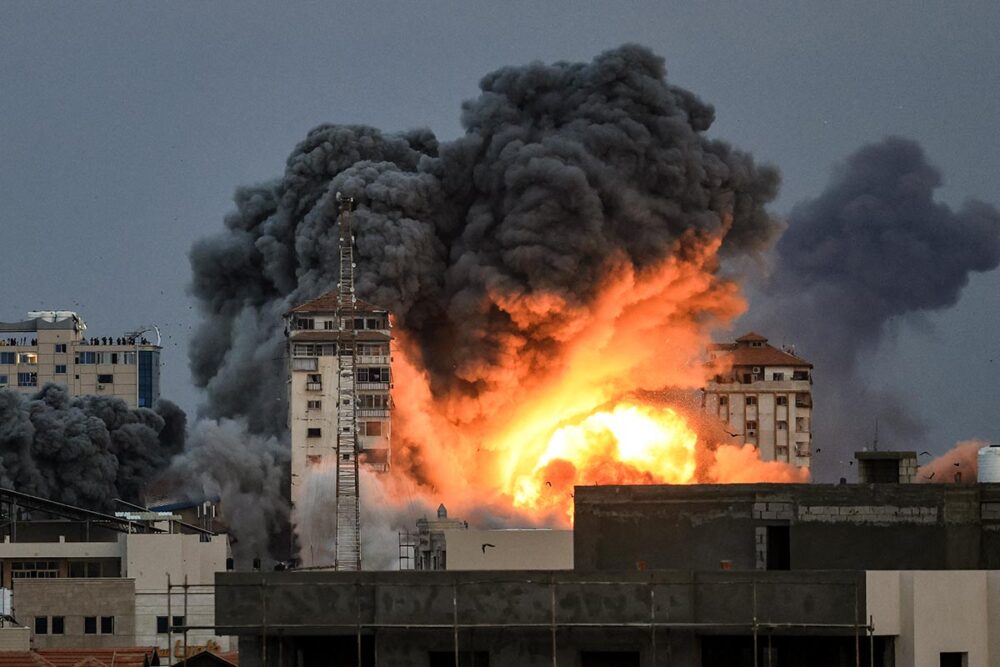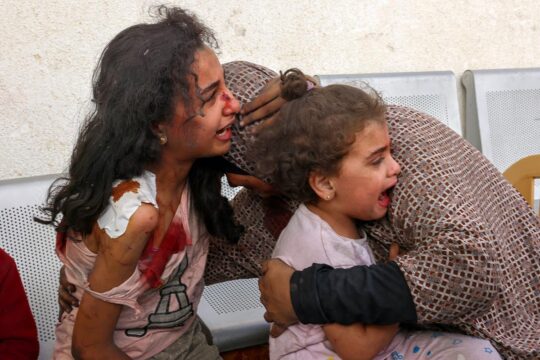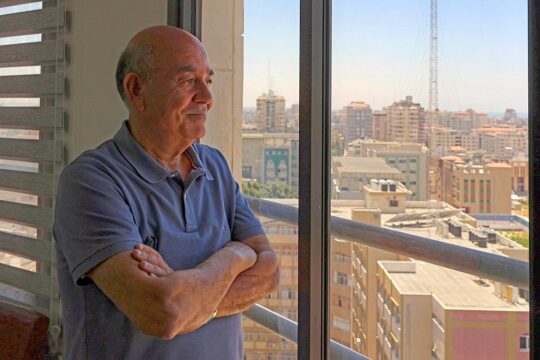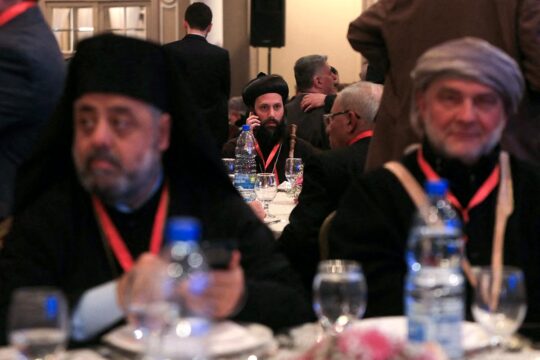The Prosecutor of the International Criminal Court has been strongly criticized for his silence and lack of action on the Palestine situation. The contrast with his hyper activity and high-profile arrest warrants on Ukraine is striking. Our partners at Asymmetrical Haircuts talked to ICC prosecutor Karim Khan about the Palestine-Israeli situation more than a week after the attack of Hamas on Israeli soil, and the following bombardment of Gaza by the Israeli army. His deputy Nazhat Shameem Khan too spoke to them last August. Listen to what they said in their defense.
Can international law play a role? There is the ICC. And there is the International Court of Justice – which has already ruled in 2004 that the wall Israel built along the West Bank and the Israeli settlements in Palestinian territory were breaches of international law.
Two Palestinian scholars are additional guests of this podcast. They explain how the situation has affected them, and how it has led them for years to think critically about international law. “We’re not held to the same standards of free speech and academic discourse than our colleagues are. It’s hard to operate in a system of double standards,” stressed Ata Hindi from Birzeit University and Tulane University in New Orleans. “Throughout the history of international law the lens with which we’ve looked at the Palestinian cause has been maimed with embedded racism,” Shahd Hammouri of University of Kent said.
To listen to the podcast, click on the "play" button below:
The news from Israel and Palestine is shocking to all of us, and challenging to the community of people who live and breathe international law. We thought we’d round up some of the current commentary by playing you some of an interview the ICC’s top prosecutor Karim Khan gave in reaction to the massacres, kidnappings, bombardments and siege and many many civilian deaths. We added in a discussion we had thought of many months ago, but which became urgent, asking some Palestinian academics who have been involved behind the scenes at the International Criminal Court and the International Court of Justice in supporting civil society or preparing submissions, how they feel about the institutions that are supposed to uphold the international rule of law.
Ata Hindi is at Birzeit University and currently teaching at Tulane University in New Orleans, and Shahd Hammouri is at the University of Kent.
 ASYMMETRICAL HAIRCUTS
ASYMMETRICAL HAIRCUTS
This podcast has been published as part of a partnership between JusticeInfo.net and Asymmetrical Haircuts, a podcast on international justice produced from The Hague by journalists Janet Anderson and Stephanie van den Berg, who retain full control and independence over the contents of the podcast.







